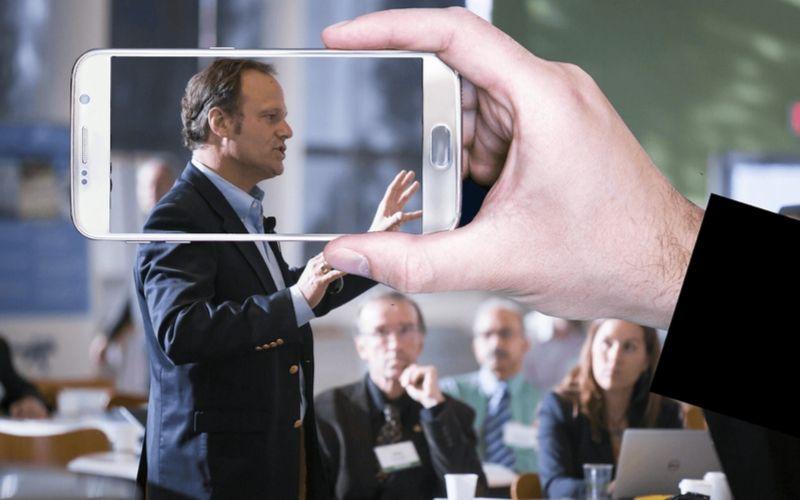Personal branding today is no longer an afterthought or a nice-to-have for the ambitious entrepreneur, marketer, or salesperson. It has become a necessity.
In today’s business world, we have seen the shift from big-brand-led marketing towards a more personalized, personal branding.
Customers are more likely to buy from a brand with a humanized face. For example, when you think of Microsoft, whose image comes to mind? Bill Gates!
Think of Apple, and Steve Jobs comes to mind. Amazon triggers the image of Jeff Bezos. Richard Branson is the face of Virgin Group. And it’s very likely that when you think of UBA (United Bank of Africa), the image of Tony Elumelu jumps right out.
Want to Grow Your Real Estate Business? Download the Complete Grant & Funding eBook for instant access to grants, guides, and more. 80+ Grant and Scholarship Opportunities (FG, State-by-State, General & Underrepresented Groups Scholarships, Plus Grant Writing Checklist). 900+ Copies Sold Already. Get Your Copy Now
One unifying thread among these corporations is that their founders’ strong personal brandings are behind them.
Thankfully, individuals can build their personal brands with social media and the internet.
To help you build your personal brand, here are 7 common personal branding questions people often ask.
7 Common Personal Branding Questions Answered
What is personal branding?
Google says it is the ‘practice of marketing people and their careers as brands. It is an ongoing process of developing and maintaining a reputation and impression’.
Your definition might differ slightly, though – some people say it is what other people say about you when you’re not in the room, for example.
Personal branding is about making your target audience know, like, and trust you.
Here’s what some big personal brands say about personal branding:
A brand is the set of expectations, memories, stories and relationships that, taken together, account for a consumer’s decision to choose one product or service over another. – Seth Godin
It’s important to build a personal brand because it’s the only thing you’re going to have. – Gary Vaynerchuk
Your personal brand is a promise to your clients… a promise of quality, consistency, competency, and reliability – Jason Hartman
Why is personal branding important? Why would an entrepreneur want to build their personal brand?
Here are my favorite benefits of a personal brand:
Sales become easier
Your prospects are already convinced of your experience and knowledge, so you’ve no convincing to do.
In fact, they’ll want to work with you so badly that you might have to turn some down.
Diversifying your cashflow
If you have a strong personal brand, you’ll have more speaking engagements, training, and consulting opportunities. If your clients dry up, your bank balance won’t.
Building a team
It’s easier to recruit top talent when you have a powerful brand.
New audience
You’ll grow your audience massively by tapping into other people’s following through guest appearances on podcasts, blogs, and news feeds.
You can charge more
Since you have built a perception of yourself as the industry-leading expert, you deserve to charge industry-leading prices.
More clients and customers
People do business with those they know, like, and trust. More people knowing, liking, and trusting you means more business, even at higher prices.

How can I grow my personal brand?
This warrants a whole blog post or even a coaching course in itself, but if I were to sum it up in a few words, I would say this:
Through impacting your ideal client’s day-to-day lives with engaging content that demonstrates expertise and care.
Let’s unpack that a little.
Recommended For You: How We Made Six Figures In 21 days Just Sending Emails
The overall theme is giving.
If you’re not giving far more than you receive, you’re not building a brand effectively.
Give without expecting to receive. Your reward is bettering the lives of the audience you serve.
Another theme is producing engaging content.
Content is arguably the most powerful tool in a marketer’s arsenal, and you should also use it in your personal branding efforts.
For content to be engaging, it needs to engage your audience in some kind of activity. Whether that’s answering a question you asked in a post or laughing along to the humorous anecdotes you’ve made.
The key here is to be relatable. Ask questions to which you know they will have an answer, make jokes they’ll understand, and use the language they use.
You also need to demonstrate expertise and care.
This will help you position yourself as an authority in your niche or an ‘industry leader’.
Take Gary Vaynerchuk. Love or hate him, he’s one of the biggest personal brands in the entrepreneurial space.
Why? Because he certainly knows what he’s talking about – the man loads us with insightful content daily.
He also cares for his audience. Think about his tone, how he helps his audience with specific questions and the lengths he will go to speak to his audience in person.
That’s a man who both knows his stuff and cares.
This brings me to my next point. Gary Vee doesn’t just provide value – he goes beyond that.
Don’t focus only on providing value; think about making an impact
We talk a lot about value in the marketing space, but we need to start focusing on ‘impact’.
Everyone is providing value nowadays; come on… You’re not going to win by doing what everyone else is doing.
It’s time to provide impact. Being impactful is influential, powerful, actionable, and memorable. It has the ability to change a mindset or behavior.
Impact creates personal brands.

What are some tips for growing your personal brand?
On top of what I’ve already said, here are some actionable steps to building your brand:
(Note – we want to make our audience know, like, and trust us here)
RELATED: How to Brand Yourself As A Thought Leader
Set the foundations
We all know about the man who built his house on sand, right? Know your why and your values.
What is your reason for doing this and what do you want to help others achieve?
This will give you clarity and purpose on the road to a powerful personal brand and allow you to resonate with your audience.
Collaborate
Partner with other personal brands in your niche to produce content and tap into each other’s audiences.
This will help you become known to more people.
Show up consistently
It’s psychologically proven that the more we see a face, the more we like that person. We associate familiarity with liking.
So show up regularly, preferably daily, with helpful content for your audience.
Be authentic and helpful
If you’re authentic and give your expertise to others without expecting to receive it back, you’ll gain their trust.
Trust is huge, especially if you’re charging top dollar for your services. No one is getting their wallet out unless they trust you.
Provide an experience money can’t buy
Money can buy resources, courses, information, etc.
What money can’t buy is the ability to remember a person’s stories or the kindness to send helpful gifts like books to your clients.
Recommended for you: Get instant access to free business templates + 12 months marketing and social media plans to grow your business in 2023.
What’s needed to have a profitable personal brand?
A few things:
- A set of clearly defined values and goals
- An incessant desire to GIVE
- A powerful (but not necessarily large) online or offline presence
- Expertise
- Impactful content (plus a strategy)
- Organized marketing systems
- Authenticity
- A product whose value far exceeds its price
- An audience starving for your product
- Strong relationships
- Consistency and determination
Some other things that will help you but are not essential are:
- Good filming and editing software
- Content creation freelancer or team
- Experience, case studies, testimonials, portfolios
- Funnel, email campaign or scheduling software
How do I build a personal brand alongside a business?
Firstly, it’s important to know your goal. Are you trying to sell your business’s product or service, get personal speaking engagements, or build relationships for the future?
Optimize your social profiles, so your audience knows who you are, what you do, and your affiliation with the business.
Demonstrate authority and expertise by including testimonials, case studies, previous experience, etc.
Understand your audience. Take the time to research and speak to your audience about why they want your product (they don’t want the product; they want the outcome it provides).
Also, understand them as people, what makes them tick, what humor they like, what content they enjoy, etc.
Create impactful, helpful content around your research. GIVE, GIVE, GIVE to your audience to grow it.
Engage and collaborate with your audience, influential players in your industry, and group conversations.
It’s called personal branding for a reason. Focus on having a personality.
Think about this in terms of your audience. They don’t want another bland, vanilla company pushing out dull content (sorry, vanilla fans)
Be consistent in providing impactful content, and your brand will increase in power. And provide a solution to a specific pain with your product.

What’s more trustworthy: a personal or business brand?
Certainly, from a consumer’s point of view, businesses (90% of the time) want to make money, especially the big brands we are exposed to most regularly.
In the modern era, consumers are beginning to see through marketing efforts made by businesses as inauthentic and even slimy.
On the other hand, this is not (so much) the case with personal branding.
Humans are drawn to humans… it doesn’t take a detective to realize that community has been part of human life since, well, since it began…
We are far more open to people providing a product or service than a business, especially when they’ve spent 12 months giving to us beforehand.
And there’s another point, personal branding is far more oriented around GIVING than business brands.
Don’t get me wrong, I’m not saying that every personal brand will be more trustworthy than every business brand (there are some snakes out there), but generally, personal brands are more trustworthy.
Hand-Picked For You:
- FAQs: How to Start a Business In 2023
- FAQs: How to Grow Your Business In 2023
- FAQs: How to Fund Your Business In 2023
- Top Small Business Challenges and How to Navigate Them
This is a guest post from Sam Winsbury, a personal branding coach and Founder of Social Social

